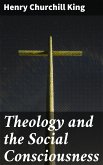In "The Invention of a New Religion," Basil Hall Chamberlain embarks on a provocative exploration of the intersection between spirituality and identity. Leveraging his expertise in Sanskrit and Japanese culture, Chamberlain critiques the mechanisms of religious formation and outlines how belief systems are not merely divinely inspired but often shaped by sociopolitical contexts. The book'Äôs literary style is marked by a robust analytical approach, melding historical anecdotes with philosophical observations, ultimately inviting readers to reconsider the nature of faith and its pragmatic roles in society. Chamberlain situates his work within a broader discourse, reflecting the cultural movements of the late 19th century, particularly the rise of Buddhism in the West and the search for alternative spiritualities amidst the skepticism of modernity. Basil Hall Chamberlain, a prominent scholar in Asian studies, has profoundly influenced Western perceptions of Eastern religions through his extensive travels and deep engagement with Japanese culture. His experiences living in Japan and his linguist prowess provided him unique insights into emerging religious narratives in the West, particularly as global perspectives began to evolve. Chamberlain's thorough research and personal encounters with these belief systems uniquely positioned him as a critical observer and commentator upon the era's spiritual shifts. I highly recommend "The Invention of a New Religion" to readers who seek a deeper understanding of the complexities of belief and identity in an increasingly pluralistic world. Chamberlain'Äôs incisive analysis enables contemporary audiences to see the relevance of historical theological debates while challenging them to reflect on their own spiritual journeys.
Dieser Download kann aus rechtlichen Gründen nur mit Rechnungsadresse in A, B, BG, CY, CZ, D, DK, EW, E, FIN, F, GR, H, IRL, I, LT, L, LR, M, NL, PL, P, R, S, SLO, SK ausgeliefert werden.









